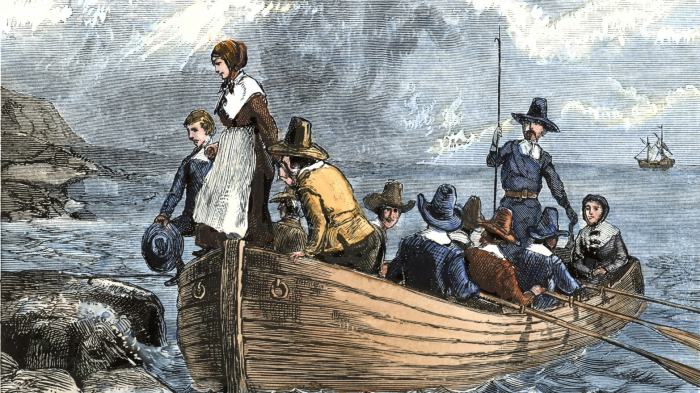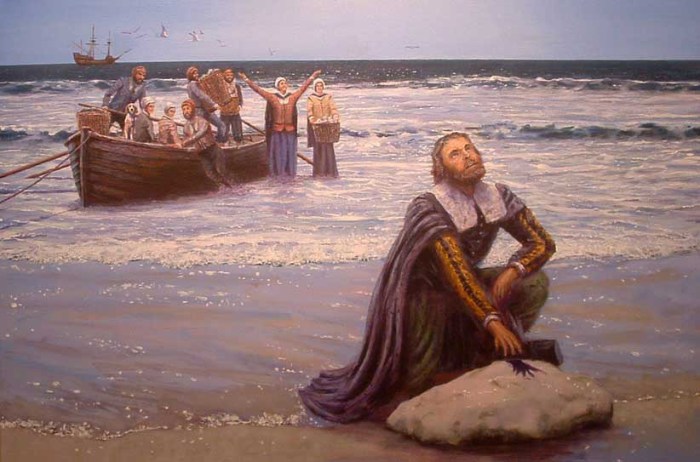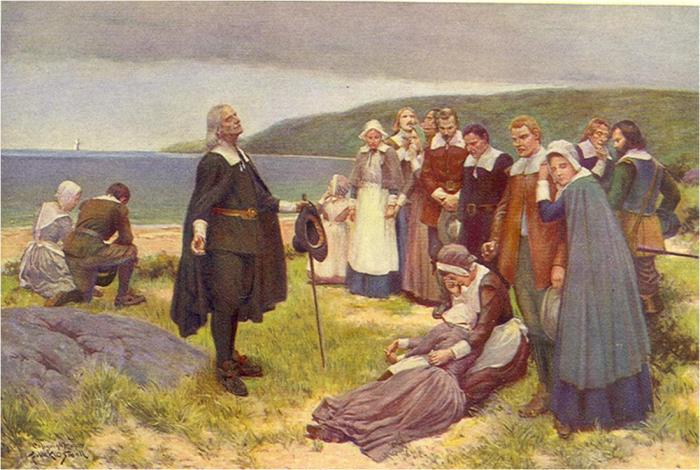Early Boston settlers crossword clue unveils the intriguing story of the individuals who laid the foundations of one of America’s most influential cities. This exploration delves into their origins, motivations, and the profound impact they had on shaping Boston’s society, economy, and culture.
The early Boston settlers hailed from diverse backgrounds, united by their pursuit of religious freedom and economic opportunity. Their arrival in the Massachusetts Bay Colony marked the beginning of a transformative era, characterized by the establishment of Puritan ideals, thriving trade, and the emergence of a vibrant intellectual community.
Early Boston Settlers: Immigration and Demographics

The early Boston settlers were primarily English Puritans who immigrated to the Massachusetts Bay Colony in the 17th century. They sought religious freedom and the opportunity to establish a new society based on their Puritan beliefs.
Reasons for Immigration
- Religious persecution in England
- Economic hardship and limited opportunities
- Desire for a new start in a land of their own
Demographics
The early Boston settlers were a diverse group in terms of age, gender, occupation, and social status.
- Age: Mostly young adults and families
- Gender: Majority male, with a significant number of women
- Occupation: Farmers, merchants, artisans, professionals
- Social Status: A mix of upper, middle, and lower classes
Puritan Beliefs and Influence on Boston Society

Puritanism was a Protestant religious movement that emphasized the sovereignty of God, the importance of individual salvation, and the need for a strict moral code. Puritan beliefs had a profound impact on the development of Boston society.
Key Tenets of Puritanism, Early boston settlers crossword clue
- Predestination and election
- Covenant theology
- Importance of literacy and education
- Emphasis on discipline and self-denial
Influence on Boston Society
Puritan beliefs shaped Boston’s laws, social norms, and cultural practices.
- Laws: Enforced strict moral codes, such as prohibitions on gambling, drinking, and dancing.
- Social Norms: Emphasized community, hard work, and plain living.
- Cultural Practices: Encouraged literacy, established schools, and supported intellectual pursuits.
Economic Activities and Trade in Early Boston: Early Boston Settlers Crossword Clue
The early Boston settlers engaged in a variety of economic activities to sustain their community and build their economy.
Economic Activities
- Fishing: Cod and other fish were abundant in the waters near Boston.
- Shipbuilding: Boston became a major center for shipbuilding, producing vessels for trade and fishing.
- Trade: Merchants traded with other colonies and countries, importing goods such as sugar, molasses, and manufactured items.
- Agriculture: Farming was also an important economic activity, providing food for the growing population.
Governance and Political Institutions in Early Boston

The early Boston settlers established a representative form of government based on Puritan principles.
Structure of Government
- Town Meetings: Open assemblies where all male citizens could participate in local decision-making.
- Selectmen: Elected officials who carried out the decisions of town meetings.
- General Court: A representative body that made laws and governed the colony as a whole.
Challenges and Conflicts
The early Boston settlers faced challenges in establishing a stable and effective political system.
- Religious divisions: Different Puritan factions competed for influence.
- Economic inequality: Wealthy merchants had more power and influence than the common people.
- External threats: The colony faced threats from Native American tribes and other European powers.
Social Life and Community in Early Boston
The early Boston community was characterized by strong social bonds and a sense of shared purpose.
Social Structure
Boston society was hierarchical, with a small upper class, a larger middle class, and a growing population of poor laborers.
Relationships
- Family: The family was the central unit of society, providing support and stability.
- Church: The church played a vital role in community life, providing religious guidance and social connections.
- Neighborhood: Neighborhoods were close-knit communities where people interacted regularly.
Cultural Expressions and Intellectual Life in Early Boston
The early Boston settlers valued education and intellectual pursuits, which led to the development of a vibrant cultural life.
Literary and Artistic Expressions
- Literature: Boston was a center for literary production, with writers such as Anne Bradstreet and Cotton Mather.
- Art: Boston artists produced portraits, landscapes, and other works of art.
- Music: Music was an important part of Puritan life, with singing and instrumental music used in religious services and social gatherings.
Intellectual Life
- Education: Boston established the first public school in the United States, and literacy rates were high.
- Libraries: Boston had several libraries, including the Harvard College Library.
- Printing Presses: Boston was home to several printing presses, which produced books, newspapers, and other printed materials.
Clarifying Questions
Who were the early Boston settlers?
The early Boston settlers were primarily English Puritans who sought religious freedom and economic opportunity in the Massachusetts Bay Colony.
What were the key tenets of Puritanism?
Puritanism emphasized the sovereignty of God, the importance of personal piety, and the need for a strict moral code.
How did Puritanism influence Boston society?
Puritanism shaped Boston’s laws, social norms, and cultural practices, leading to a highly regulated and religiously devout society.